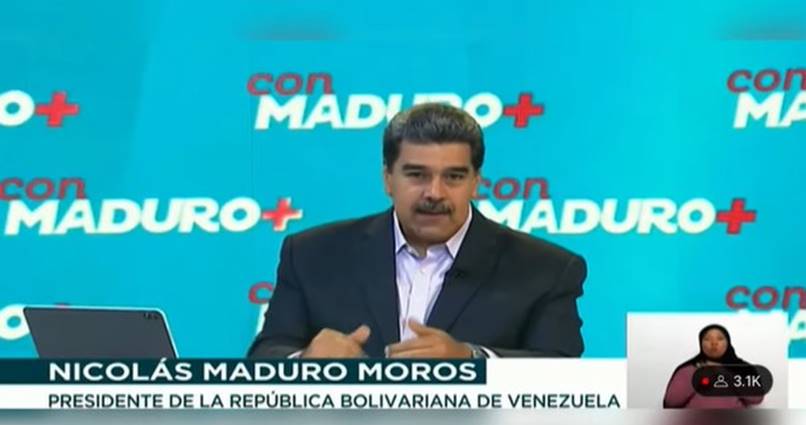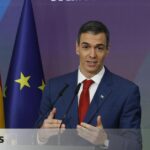
The president of Venezuela, Nicolas Madurostated this Monday (27) that his government dismantled an alleged false flag operation organized by United States Central Intelligence Agency (CIA). According to the president, the plan would aim to create a pretext for a military offensive against the country. The statements were made during the weekly program With Maduro+ and published by RT Brazil.
According to Maduro, between October 25th and 26th, three individuals arrested allegedly linked to the North American agency. The Venezuelan leader classified the detainees as “mercenaries trained and financed by the CIA” and stated that the group was planning an action in the territorial waters of Trinidad e Tobagoa neighboring country to the north of Venezuela.
“A series of arrests have been made of individuals believed to be part of a group of mercenaries trained and financed by the CIA,” declared Maduro.
“The government of Trinidad and Tobago has received evidence [da preparação de uma operação de bandeira falsa]. We are not giving any proof to the US government, because they, along with the CIA, are behind all of this.”
Operation in Trinidad and Tobago
According to the president, the operation was intended to provoke an international incident that could be used as a justification for military intervention. Maduro stated that the government of Trinidad and Tobago had been officially notified and would have recognized the evidence presented by Caracas.
The Venezuelan leader also said that he chose to do not share information with Washingtonciting previous experiences in which, according to him, US authorities protected suspects from attacks.
“We gave them names and surnames, time, place, everything, and they left to protect them here in Venezuela, to hide them,” he said, referring to an attack on the US diplomatic mission in Caracas.
Historical comparisons and direct accusations
During the speech, Maduro compared the alleged plan to historical episodes used as pretexts for war. He mentioned the sinking of the battleship Mainein 1898, which preceded the war between the United States and Spain, and the Tonkin’s Gulf-incenderin 1964, which served as justification for the US entry into the Vietnam War.
“What was the intention of that? The same thing that happened with the battleship Maine in 1898, in Cuba (…). It was a provocation, a self-inflicted harm to get involved in the war,” said the president.
Maduro also accused the Prime Minister of Trinidad and Tobago, Kamla Perish-Bussarof supporting the North American military movement in the region and used a harsh tone when publicly criticizing it.
“She is a warmongering pimp, an accomplice of imperialism,” stated the Venezuelan leader during the program.
Growing tensions with Washington
Relations between Caracas and Washington have deteriorated in recent weeks. In August, the United States sent a military contingent to the Caribbeanclose to the Venezuelan coast, under the justification of combat drug trafficking.
The American president Donald Trump accused, without presenting evidence, Maduro is Colombian President Gustavo Petro leading international drug trafficking networks. The statements worsened diplomatic tension and led to Colombia formally protesting against the measures imposed by Washington.
Since the beginning of his second term, Trump has ranked Latin American cartels and militias as “international terrorist organizations”which opens a legal loophole for the use of military force outside US territory. The Venezuelan government considers the measure part of a “hybrid war” to “impose a change of regime and take the country’s natural resources”including oil, gas and gold.
Venezuelan military response
As a reaction, Caracas announced the “Independence 200” planwhich provides military exercises in coastal regions and strengthening the Bolivarian Militiamade up of civilian volunteers. The objective, according to the Ministry of Defense, is to prepare the country for “any scenario of external aggression”.
In recent days, Venezuelan state television has shown images of tanks, anti-aircraft artillery and naval vessels being positioned along the Caribbean coast. The government classified the maneuvers as part of a preventive strategy in the face of the “North American military siege”.
During the program, Maduro stated that Venezuela is ready to defend its sovereignty “on all battlefields” and that the Armed Forces remain on alert.
International support
The Caracas denunciations had repercussions on the international community. In session of United Nations Security Councila Russia expressed support for the Venezuelan government and accused the United States of promoting “a shameless campaign of political, military and psychological pressure” against the country.
The Russian Foreign Ministry stated that Moscow “fully supports Venezuela’s right to protect itself from external threats” and that any attempt to intervene would be considered a “serious violation of international law.”
To date, the US Department of State ea White House did not comment on the accusations made by Maduro. Political analysts interviewed by international vehicles point out that the complaint comes at a time of strong military rhetoric in the region, following the intensification of US naval operations in the Caribbean and the sending of the aircraft carrier USS Gerald Ford to South America.
Regional context
The new escalation of statements occurs while Trinidad e Tobago hosts joint military exercises with US forces. The local government has not yet officially commented on Caracas’ accusations, but regional analysts note that the situation increases tension around the Caribbean and could worsen polarization between countries allied with the United States and those aligned with Russia and China.
Source: https://www.ocafezinho.com/2025/10/28/maduro-acusa-cia-de-planejar-operacao-de-bandeira-falsa-para-justificar-ataque-militar-contra-a-venezuela/

